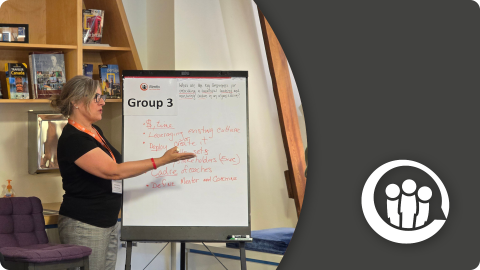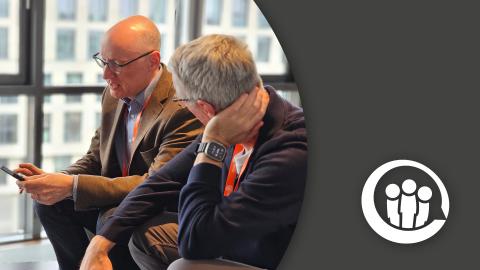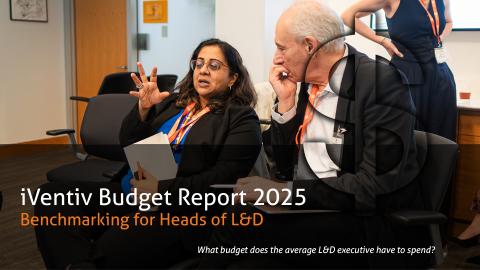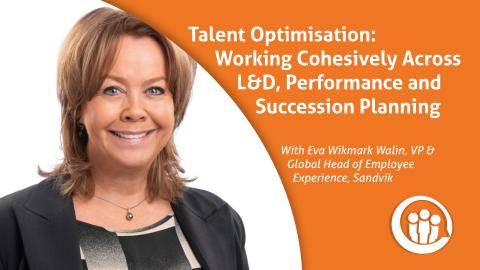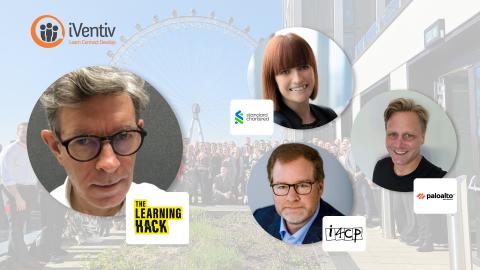Doug Scott, the former leader of Executive Leadership at GE, and Jay Moore, the Global Learning & Culture Leader at GE Crotonville, spoke with iVentiv about GE’s Corporate University campus at Crotonville, its history, and significance. The two experts shared their experiences and insights on leadership development, the role of emotional intelligence, and the importance of trust in building a culture of collaboration.
Leadership Development at Crotonville: Lessons in Emotional Intelligence and Trust
Crotonville was established in 1956 as a "12-week program on the campus" to train professional managers globally. According to Doug, "Crotonville is about how we do things," and it teaches leaders emotional intelligence and humility. The impact extends beyond its physical location, with satellite programs across the world. Doug explained that "Crotonville wasn't just located north of New York," it had a significant footprint that was real across pretty much every continent in the world.
Doug emphasized the importance of contextual leadership, saying, "different times and needs require different skills." He gave the example of Winston Churchill being the right prime minister during tough times, but not necessarily during times of peace. Jay added to Doug's point, saying, "leaders contextually have to manage through those moments," and that there are things that leaders have to leave behind and things that they have to grab to go forward with, solving for a particular need at a particular time.
Trust is a critical component of Crotonville's success. According to Doug, "one of the critical things that Crotonville has, that really sets it apart, is trust." Big senior leaders running billion-dollar businesses trust Crotonville professionals to add value and help them with cultural change. Jay agreed, saying, "how do you treat and work and build that trust, Doug, that you're describing? I'll tell you, it just makes a tremendous difference." During times of change, trust is critical, as it can either be a roadblock or accelerate the agenda. GE has built a tremendous amount of trust over the years, allowing teams to work together effectively during times of change.
Rankless Nature and Safe Spaces: What Makes Crotonville Unique?
Jay and Doug explained that one of the things that made Crotonville unique was its rankless nature, where senior leaders can sit at the same table with the newest, most junior person in the company. This allows for more relaxed conversations, accelerating learning, and helping with change. Jay praised the listening, engagement, and invested skills of good learning organizations, which help to eliminate blind spots for leaders who may not be seeing their message or strategy resonate throughout the company.
Doug shared the story of a class on emotional intelligence, where he asked participants to take an hour every morning to turn off from work and focus on themselves. Jay talked about the "Leader in Residence" program, which brought senior leaders to the campus to immerse themselves in classes and engage with participants. Jay noted that this program was so successful that it was taken virtual, and that leaders often gained just as much as the participants did from the experience.
Doug and Jay talked about how Crotonville fosters trust and understanding among employees. Doug noted that "the structure of Crotonville...is kind of...a secret sauce of, 'this is how stuff's done.'" He also emphasized the importance of vulnerability in building trust, and how the safe space at Crotonville helped employees unpack their barriers. Jay mentioned the strong engineering and continuous improvement culture at GE, and how these cultures align with Crotonville's values.
The Impact of Technology on Leadership Development: Challenges and Opportunities
Doug and Jay also touched on the impact of technology on leadership development. Doug noted that while technology has made certain aspects of leadership development easier, such as virtual learning and the ability to access information quickly, it also poses challenges in terms of maintaining human connection and building trust. Jay added that technology can also create a disconnect between leaders and their teams, as leaders may not be aware of what is happening on the ground. He emphasized the importance of leaders staying connected and engaged with their teams, even in a virtual setting.
As Doug puts it, "I do think it's that hybrid piece of learning, it's just like the hybrid piece of how many days do we go to the office each week." While technology has posed challenges in terms of maintaining human connection and building trust, it has also provided opportunities for virtual learning and quick access to information. As Jay explains, learning and leadership teams like his team at GE are getting better at recognising and “defining those moments” where the efficiency and reach of the virtual is valuable.
In a world where change is constant and complex, Crotonville has provided leaders with the tools and skills they need to navigate through these challenges. As Doug notes, "there are different times, there are different environments, and there are different places, companies and governments and countries are going in... different times and needs require different skills."
Overall, Crotonville has been a critical component of GE's success, and has contributed to the development of countless successful leaders. As Jay notes, "at the end of the day, it's all about people, and it's all about building a better world." Crotonville has been instrumental in building better leaders, and in turn, building a better world.
iVentiv will be back at Crotonville later this year for Executive Development New York. Find out more about how to get involved here.
Doug Scott is the Former Leader of Executive Leadership at GE, with over 30 years of experience in leadership roles at the company. He has been instrumental in developing and implementing leadership development programs at GE, including Crotonville. Jay Moore is the Global Learning & Culture Leader at GE Crotonville, responsible for driving GE's learning and development strategy. He has over 25 years of experience in learning and development, and has been a key contributor to the success of Crotonville.

